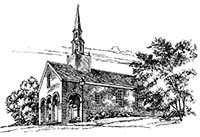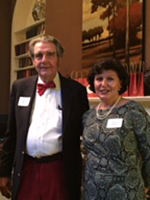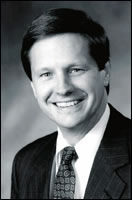- About
- Admissions
- Academics
- Athletics
- Student Life
 Planned gifts and bequests provide vital funds to strengthen and sustain South Kent School’s future, giving vitality and sustainability to our endowment and our capital and operating needs. Examples of planned gifts in this instance are naming South Kent as a beneficiary on a life insurance policy, a pension or 401(k) plan, an IRA and naming South Kent as a beneficiary within charitable remainder trusts and charitable gift annuities.
Planned gifts and bequests provide vital funds to strengthen and sustain South Kent School’s future, giving vitality and sustainability to our endowment and our capital and operating needs. Examples of planned gifts in this instance are naming South Kent as a beneficiary on a life insurance policy, a pension or 401(k) plan, an IRA and naming South Kent as a beneficiary within charitable remainder trusts and charitable gift annuities.
We are deeply appreciative of these individuals for their thoughtful generosity which will help to ensure the future strength of South Kent for years to come.
If you are contemplating including South Kent in your estate plans, please consult your attorney or accountant for the vehicle that best meets your needs. If you would like additional information about planned giving, please contact Chris Farr '84, Chief Advancement Officer at 860-927-3539 x204 or at [email protected].
St. Michael’s Society
The St. Michael’s Society was created to recognize and thank alumni, parents, grandparents, and friends who have established a charitable gift for South Kent School in their estate plans.
Members of the St. Michael’s Society share a deep affection for South Kent School and a commitment to ensure the School’s mission, principles, and traditions for future generations of students.
To learn more about how you can help South Kent's future, please call Chris Farr '84, Director of Advancement at 860-927-3539 x204.Meet our Members
 Richard W. Martin '49
Richard W. Martin '49
Member of St. Michael's Society
In 1947 our father was the first minister of The Church of the Good Shepherd in Austin, TX. He knew he would be relocating during the next school year and was reluctant to move while I was a senior in high school. He was considering boarding schools when someone suggested South Kent School. During a phone conversation, Sam Bartlett told my father the school would accept me and my next brother, Doug, '50, at a tuition my father could set. (I learned this much later, and it cemented my desire to help the school in any way I could.) Thus, I entered the 5th Form (not a common thing then) to repeat the 11th grade; but I only repeated one course in trigonometry. Later our third brother, Rog '54, attended.
South Kent School played a huge part in my future, preparing me for any number of things - not the least of which was my fascination with the bow ties my roommate, Del Hitch, wore. Del gave me two of his oldest and tried to show me how to tie them. I finally learned after long, arm-tiring sessions before the mirror. I've worn them ever since, except for my seven years in the Navy. They've been a bit of a trademark.
I recall many new experiences and approaches to life from my time at South Kent School:
- Getting up early to help shovel snow. This was new to me as Texas had little, and I was too small to help when we lived in Arkansas and Virginia.
- Digging potatoes and collecting apples.
- Helping with farming and maintenance one summer.
- Taking the first 10 minutes of an exam to think, plan and organize before putting my pen to paper. (Thanks, Wuz - Lester Wittenberg!)
- As 6th Form truck driver, taking Bill, the cook, home most evenings, and getting the mail daily from the store/post office by the railroad tracks.
While I am sure I had forgotten the three principles of the school - Simplicity of Life, Self-Reliance and Directness of Purpose - in looking back I feel my life has reflected these, though my wife suggests my parents already had planted these seeds. Either way, these principles undoubtedly guided me.
From South Kent I went to The College of Wooster, majoring in English History. And from there, I entered Cornell University Medical College (now called Weill Cornell Medical College) in New York City, following two uncles and an aunt who went there. I entered the US Navy after one year of residency, completed my surgical training at the Naval Hospital in Philadelphia, and spent three years at the Naval Hospital in Charleston, SC. My years in the Navy included overseas tours in the Mediterranean and four months with a surgical team on two ships in Vietnam.
I developed a solo surgical practice for 11 years in Mooresville, NC, relocated to Salisbury, NC, and, 12 years later, added a partner to start Salisbury Surgical Associates, PA. I retired from surgery in the summer of 1999.
I now enjoy my time around the house. I "make a lot of sawdust" in my garage shop and spend more time at church in the choir and with other activities. I've served two vestry terms at St. Luke's Episcopal Church in Salisbury, and two terms as a trustee for Hood Theological Seminary, where I now am a trustee emeritus.
Long before I had heard about the St. Michael's Society, I planned for my estate distribution to include educational institutions. My parents gave all four of their children educations, and I felt that, having done the same for my two, approximately 50% of the residual monies in my estate could be distributed to those institutions I/we felt had played - and still play - a role in my life. South Kent tops that list. The remaining monies will be distributed among my 'other' charities. This will occur after the second one of us dies. Hopefully, much still will be in tax-deferred IRA accounts and will be distributed directly and hence untaxed.
South Kent School is a great preparatory school. Its mission is very appropriate in today's world. I am pleased and grateful to be able to continue to support it. I hope others will feel the same way.
 Neilson Brown II '63
Neilson Brown II '63
Chapel Hill, N.C.
Neilson Brown, a second-generation alumnus of SKS (his father, Hobson, ’34), has been an active volunteer of South Kent School for more than 25 years. He is a former chairman of the Board of Trustees. Neilson earned his bachelor’s degree from the University of North Carolina, and an MBA from Wharton. He believes in planned giving.
He and his wife Mary have included South Kent School in their estate planning. Neilson has established a specific nominal bequest in his will for SKS. Together they have agreed to name the School as a residual beneficiary of his IRA; SKS will receive a significant percentage of the then remaining principal.
Quoting Neilson, “Because of the double taxation of IRA benefits in a decedent’s estate, individuals should look first to their retirement plans, when considering a bequest to South Kent School, and leave other assets to their heirs. It’s almost a no brainer given the tax bite involved otherwise.”
 Bonnie and Hank Steele '54
Bonnie and Hank Steele '54
Indio, CA
Upon being invited to write about our decision to include South Kent in our estate plans, I began thinking about the school and all that it has meant to me.
Such thoughts led me to the SKS website where one of the first categories I saw was the daily menu. And what a menu it is. And a chef who graduated from the Culinary Institute of America. Wow. For alumni of my era that's pretty startling.
Of course, also listed and discussed on the website, are the core values - Simplicity of Life, Self-Reliance, Directness of Purpose. Even in those long-ago days, it was a something of a culture shock to find out just how seriously Sam Bartlett took the value of simplicity.
Since our diets were restricted (one box of Milk Duds on Saturday night hardly counts), I think we should be forever grateful that there were those Sunday afternoon teas. Aside from ingesting as much sugar as possible, the caring family atmosphere at the faculty homes gave us some relief from the demands and isolation of life on the Hill.
I'm sure that many remember other examples of the caring faculty that helped us. During Fourth Form, I was failing Wynn Wister's Latin class. He tutored me at night until I eventually grasped the joys of the ablative absolute. Frankly, I don't know which helped me more; being tutored by Wynn or sitting afterward in their living room talking with him and Sally.
That summer, I worked on the school's summer crew with Reuben Lee. Our jobs were basically the same as the student jobs during the school year with one big difference. We had the school jeep.
Evenings and weekends we could drive to Kent or Salisbury or Danbury or wherever. We also met the Kent school summer crew and frequently arranged to get together for nights of teenage fun. In effect, we had freedom.
Absent was the feeling of being locked up. Over the years after graduating, I used to think about whether our isolation was a good or bad aspect of our education. Was the caring, supportive atmosphere of South Kent too much of a warm nest. Were we being properly prepared for our adult lives or was there a reality factor missing?
One answer I found is to look at the core values as the big picture. Like having the jeep that summer. We had our freedom, but we also had to take care of the jeep. Another example from that summer is that Sam Bartlett told me to weed all the dandelions on Fathers' Field. A few days later, I had to leave before the end of my contract due to a family emergency. I think I may have finished part of end zone, and I forgot to explain my departure to Sam before I left.
When I returned in September, the Old Man took me aside and asked, "When are you going to finish your weeding job?" What could I say? He was right. It took me a while to see that he was kidding, but being Sam, he was still giving me a lesson in responsibility.
Bonnie shares my love and appreciation of the school and we are pleased to name South Kent as a principal charitable beneficiary. We hope others will do the same.
Establishing a Bequest
Bequests, life insurance, charitable gift annuities and charitable trusts are all examples of planned gifts. A planned gift may allow you to make a larger gift to South Kent than you thought possible and enjoy these potential results:
- Increased income
- Reduced income taxes
- Reduced or eliminated capital gains taxes
- Reduced or eliminated estate taxes
Examples of Planned Gifts:
- Establishing a Charitable Gift Annuity with South Kent School
- Naming South Kent as a beneficiary on a:
- Life insurance policy
- Pension, IRA, 401(k) plan
- Charitable remainder trust
Bequest
Bequests are perhaps the best-known and most widely-understood planned gift arrangement. A gift made through your will is a classic and easy way to express your dedication to South Kent.
Types of Bequests
Unrestricted: Used for general purposes, this type of bequest is especially appreciated because it can be put to immediate use in the areas of greatest need at the school.
Restricted Bequest: This is a bequest that instructs South Kent School to use the gift in a specific manner.
Both restricted and unrestricted bequests are made in the following ways:
Specific Bequest: A specific asset or collection of assets in the form of cash, securities, or other property is bequeathed to the School. You may designate an amount or a percentage of the property.
Residuary Bequest: You may bequest all or a percentage of what remains of your estate after all specific legacies have been satisfied and debts and expenses have been paid.
Contingent Bequest: If a named beneficiary is not alive when you pass away, all or a portion of your estate will go to South Kent School. This type of bequest can avoid costly litigation or prevent property from reverting to the state for lack of heirs.
Sample Bequest Language
I give, devise, and bequeath the sum of $_________ (or ___% or XYZ asset) to The South Kent School, South Kent, CT….”
An Unrestricted Use: To be used in such a manner as the Board of Trustees deem most useful for the general purposes of The South Kent School, South Kent, CT.
A Restricted, Current Use: To be used for scholarship aid (or faculty salaries, building maintenance, student research) at The South Kent School, South Kent, CT.
Endowment, Income Unrestricted: To be added to the endowment fund of The South Kent School, South Kent, CT , the annual income thereof to be used for the benefit of The South Kent School, in such a manner as the Board of Trustees thereof may direct.
Endowment, Income Restricted: To be added to the endowment of The South Kent School, South Kent, CT, to establish the (name of scholarship or fund), the income from which shall be used to pay, in full or in part, the tuition of students with financial need and in academic good standing, as determined by the policies of The South Kent School.
Gifts of Real Estate
A primary or vacation residence or other property may be used to fund a charitable gift. Donors may choose to continue to live in a house or give a home outright. Investment property may be gifted as well.
Gifts of Life Insurance
Many people own outdated or unneeded life insurance policies. One’s circumstances may change. Consider donating an unneeded insurance policy to South Kent and receive a charitable tax deduction while you are making a special gift.
Charitable Gift Annuity
A person(s) irrevocably transfers to South Kent some cash or other property and the School agrees to pay the donor or other beneficiaries guaranteed payments for life.
Charitable Trust
A trust that is held for the benefit of South Kent School in which the principal of the gift is invested and the income is distributed to the School.
Charitable Lead Annuity Trust
A donor irrevocably transfers assets to South Kent School and the School receives income payments from the trust for a specified number of years. The trust makes a fixed-dollar payment annually to South Kent. At the end of that term, the assets of the trust return to the donor.
Charitable Lead Unitrust
South Kent School receives income payments from the trust for a specified number of years. The trust pays a fixed percentage of the market value, determined annually, to the School. At the end of that term, the assets of the trust return to the donor.
Charitable Remainder Annuity Trust
An irrevocable trust in which a donor gives cash or assets to the trust, allowing the payment of income to one or more persons for their lives or a term of years. At the end of this time, the trust's assets are given to South Kent School. The donor receives a fixed income from the trust for the rest of his/her life. The trust assets become the property of the School upon the donor's death or in a pre-established period.
Charitable Remainder Unitrust
An irrevocable trust in which a donor gives cash or assets to the trust, allowing the payment of income to one or more persons for their lives or a term of years. At the end of this time, the trust's assets are given to South Kent School. The donor receives variable income from the trust for the rest of his/her life. The trust assets become the property of the School upon the donor's death or in a pre-established period.
IRA Charitable Rollover
IRA Qualified Charitable Contributions Have Been Reinstated and Made Permanent!
Use your traditional IRA to make your charitable gifts in 2016
In year-end legislation, the Consolidated Appropriations Act of 2016 finally made permanent qualified charitable distributions (QCDs) from individual retirement accounts. This allows individuals age 72 (70½ if you reach 70½ before Jan 1, 2020) to make charitable gifts directly from a traditional IRA account to charity without incurring federal income tax on the withdrawal. The IRA Charitable Rollover provides you with an excellent opportunity to make gifts during your lifetime from an asset that would be subject to multiples levels of taxation if it remained in your taxable estate.
Because Qualified Charitable Distributions Are Finally Permanent, Now’s A Good Time To Review The Rules.
To Qualify
- Only individuals who’ve attained age 72 (70½ if you reach 70½ before Jan 1, 2020) may make the gift
- Transfers must be made from any IRA or retirement annuity, directly to South Kent School, but not from a simplified employee pension, a simple retirement account or an inherited IRA.
Benefits – Qualified Charitable Distributions
- Can total up to $100,000 (SECURE Act change: The amount of your qualified charitable distribution will be reduced by the amount of any deductible contributions you make to a traditional IRA for the years in which you were age 70 1/2 or older, effective beginning with the 2020 tax year).
- Are not included in your gross income for federal income tax purposes on your IRS Form 1040 (however, no charitable deduction is available)
- Count towards your minimum required distribution for the year from your IRA
- Gifts must be outright. Distribution to donor-advised funds or life-income arrangements – such as charitable remainder trusts and charitable gift annuities are not allowed.
To Make the Contribution
To make a contribution, contact the intended charity to determine the exact payee name for the check. Then, using that name, instruct your IRA trustee or custodian to make a transfer from the IRA directly to charity. Many trustees and custodians already have forms and procedures in place to make this transfer. It won’t qualify if the trustee or custodian makes the mistake of putting IRA money in a non-IRA account of yours as an intermediate step. It won’t qualify if the check is made out to you. The law doesn’t provide a way to correct mistakes. The Internal Revenue Service has said that a check from an IRA may be made payable to a charitable organization described in section 408(d)(8) and delivered by the IRA owner to the charitable organization.







